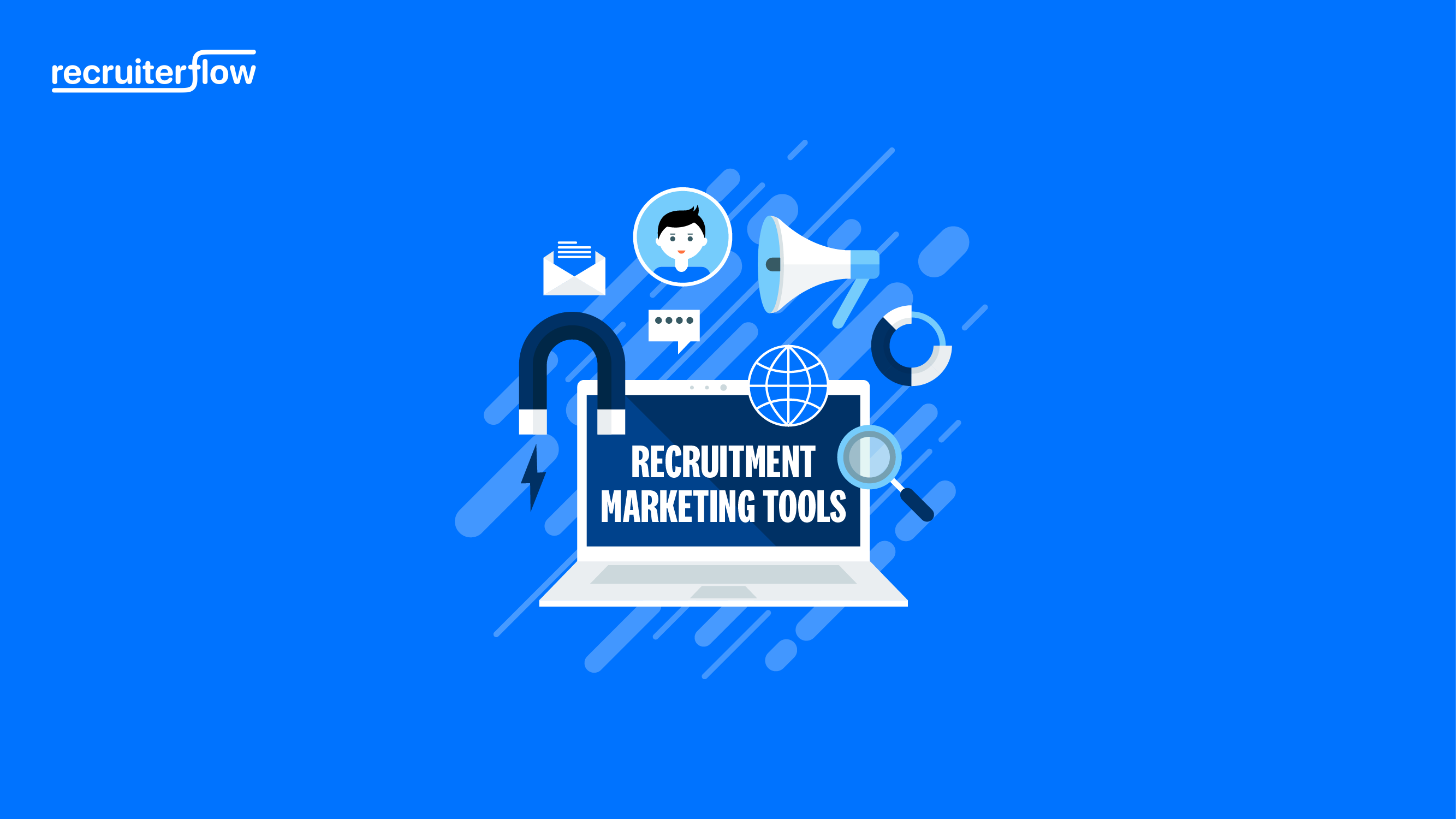
What is Recruitment CRM Software: A Complete Guide
Running a recruiting business is akin to walking on a tightrope. Delicately balancing the need to secure top-notch candidates for clients while simultaneously expanding and attracting new clients. Recruiters often find themselves teetering on this tightrope. Struggling to maintain equilibrium in both aspects of their recruitment operations. However, there is a powerful tool that serves as a savior in this challenging endeavor: recruitment CRM software.
Recruitment CRM software is the backbone of a recruiter’s operations, providing the necessary support to navigate the intricacies of candidate and client management. It acts as a central hub, allowing recruiters to seamlessly manage and track candidate and client interactions, ensuring no opportunity slips through the cracks. By harnessing the power of CRM software, recruiters can strike a delicate balance between sourcing the best candidates and fostering fruitful relationships with clients.
In this recruitment CRM guide, we have answers to all your queries related to recruitment CRM software for your recruitment firm.
What is a Recruitment CRM software?
Recruitment CRM software centralizes all your professional relationships (candidate and client) into one accessible location. It is a comprehensive recruiting tool to track candidate progress and manage your client pipeline to expedite successful deals.
Functioning as a cloud-based technology, Recruitment CRM equips you with tools, metrics, and tracking systems for effective candidate hiring, client management, and coordination.
Why do recruiting and staffing agencies need recruitment CRM software?
Recruiting and staffing agencies need recruiting CRM software for several reasons:
1. Efficient management of the recruitment process
Recruitment CRM software enables recruiters to manage the entire recruitment process efficiently, from lead generation to candidate sourcing and recruiting. By providing a centralized platform for managing candidate and client information, recruitment CRM software streamlines the recruitment process, enabling recruiters to save time and resources.
2. Enhanced candidate engagement
Recruitment CRM software enables recruiters to engage with potential candidates and clients promptly and relevantly. This helps recruiters build a strong talent pipeline, nurture candidate relationships, and ultimately drive better hiring outcomes.
3. Improved client management
Recruitment CRM software also enables recruiters to manage their clients effectively. It enables recruiters to track interactions, manage communication, and stay on top of client requirements in one centralized platform. With customizable pipelines and automation features, recruiters can streamline processes, ensuring timely follow-ups and personalized engagement. The analytics and reporting capabilities provide valuable insights for optimizing client management strategies and delivering exceptional results.
4. Better data management and analysis
Recruiting CRM software provides a centralized database for storing and analyzing candidate and client data. This helps recruiters make data-driven business decisions, improve recruitment outcomes, and optimize their recruitment strategies over time.
Benefits of using a recruiting CRM
Recruiting and staffing agencies face unique challenges in managing the recruitment process for their clients. With a large pool of candidates, clients, and leads to manage, keeping everything organized can be daunting. This is where a recruitment CRM comes in. By using a recruitment CRM, agencies can streamline their processes and improve their overall efficiency. Here are the top 10 benefits of using a recruitment CRM for recruiting and staffing agencies –
- Improved candidate engagement and communication
- Centralized database of candidates and client information
- Streamlined recruitment processes and workflows
- Automated task management and scheduling
- Real-time analytics and reporting
- Enhanced candidate and client experience
- Increased productivity and efficiency
- Improved collaboration and teamwork
- Better candidate sourcing and tracking
- Increased revenue and profitability through better client management and business development.
- Tracking Recruitment ROI
Read more about the benefits in detail – Reasons You Need a CRM For Recruitment
Recruitment CRM features
A Recruitment CRM can greatly enhance the recruitment and staffing processes by providing a wide range of useful features. Here are some of the must-have features in a Recruitment CRM:
1. Candidate management
An effective recruitment CRM should be equipped with a candidate database that enables recruiters to search, filter, and sort through candidate information easily. This helps recruiters to easily identify the best candidates for a job opening.
2. Job Posting and Distribution
Recruitment CRMs should provide easy job posting and distribution options to multiple job boards, social media platforms, and career portals to help reach the maximum number of potential candidates.
3. Communication and Collaboration
A Recruitment CRM should provide features for efficient communication and collaboration between recruiters, candidates, and hiring managers. This includes email integration, scheduling, task management, and sharing notes and feedback. You can also research what is a softphone and integrate it for even better communication.
4. Analytics and Reporting
Good Recruitment CRM should provide analytics and reporting tools to help recruiters track and measure their recruitment metrics. This includes data on the number of candidates sourced, interviewed, and hired, the cost per hire, and time-to-fill.
5. Integration and Customisation
The ability to integrate with other HR and recruiting tools and customizable workflows and forms are important features for a Recruitment CRM. This helps recruiters streamline their processes and tailor the software to their needs.
6. Advanced Search and Filtering
The ability to search and filter candidates based on specific criteria is essential for recruiters. A good recruitment CRM should allow users to create custom search filters based on skills, experience, location, education, and more.
7. Email and SMS Integration
Communication is key in recruiting, and a recruitment CRM should make it easy to communicate with candidates and clients. Look for a CRM that integrates with email and SMS, allowing you to send messages, schedule follow-ups, and track communication history.
8. Reporting and Analytics
Recruitment CRM should provide insights into your recruitment process. Look for a CRM that offers reporting and analytics features, such as candidate source tracking, time-to-hire, and conversion rates.
9. Workflow Automation
A good recruitment CRM should automate manual tasks, saving recruiters time and effort. Features such as resume parsing, interview scheduling, and candidate screening can all be automated, freeing recruiters to focus on high-value tasks.
10. Client Portal
A client-focused feature that is an absolute must-have in any recruitment CRM is establishing a trustworthy and transparent environment by sharing candidates in specific stages with clients. This invaluable feature empowers recruiters with full control over the information they wish to disclose, enabling them to foster strong relationships based on openness and collaboration. By selectively sharing candidates in relevant stages, recruiters can provide clients with real-time progress updates while safeguarding sensitive candidate data. This client-centric feature enhances communication, builds trust, and ensures a seamless and productive partnership throughout recruitment.
Also Read: The Magic Of Recruitment CRM In A World Of Virtual Work
Things to look for before finalizing your Recruitment CRM vendor
Choosing the right CRM vendor is crucial for the success of your recruitment business. To ensure that you select the right one, it is important to consider several factors before finalizing a vendor. In this regard, we have listed down some important things to look for before finalizing your recruitment CRM vendor.
- Look for Industry endorsement
- Research the vendor’s customer base
- Testimonials of happy customers
- Implementation plan and timeline
- Support and Training Services
- Hidden charges beyond the subscription fee
Also Read : 40+ Questions to Ask Your ATS Vendor
Best recruiting CRM for recruiting and staffing agencies
Recruiting the ideal candidate can be a challenging task. Additionally, it can happen that your dream candidate is not currently looking for a job, or not actively seeking one. This is where recruiting candidate relationship management (CRM) software can provide valuable assistance.
If you are inundated with candidates and require support, consider the following list of the finest recruiting CRM software options for engaging with top talent. Each item on the list offers unique features that can help you enhance your candidate outreach efforts and expedite the hiring process.
Here is a list of the best Recruitment CRMs for your recruiting and staffing needs
- Recruiterflow – Best end-to-end recruiting CRM software for staffing and recruiting agencies wanting time-saving automation
- Bullhorn
- Zoho Recruit
- Salesforce CRM
- Recruit CRM
- Vincere
- Crelate
- PC Recruiter
- Jobadder
- Big biller
- ClearCompany
- Tracker
- Act!
To read about each recruitment CRM software, its reviews, pros and cons, and pricing in detail, read our blog: Best Recruitment CRM software for recruiters
ATS vs recruitment CRM
ATS is mainly used to manage and track job applications. It helps recruiters to manage the entire recruitment process, from posting a job vacancy to hiring the right candidate. ATS features typically include job posting management, resume screening and parsing, interview scheduling, and candidate communication.
On the other hand, Recruitment CRM is designed to help recruiters build and manage relationships with candidates, both active and passive. Recruitment CRM features typically include candidate sourcing, relationship management, candidate engagement, and analytics and reporting.
While both tools can be used for recruitment purposes, they solve different purposes. ATS is more focused on the hiring process. Recruitment CRM is more focused on building and managing candidate relationships with clients as well as candidates. Depending on your needs, you may choose to use one or both tools in your recruitment process.
Also Read: ATS vs CRM: Difference and Why you need both for your recruiting business
Frequently Asked Questions (FAQs)
1. What is a CRM in Recruiting?
CRM in recruiting stands for Candidate Relationship Management. As you can tell by the name, it’s a process that manages communication and relationships between you and your clients and candidates.
CRM is an excellent solution for recruitment professionals looking to build and nurture relationships within their talent pool.
Initially, CRM systems were focused on driving sales and retaining customers. However, in recent years, recruiting professionals have realized the need for a CRM system of their own.
Recruitment CRM systems help attract and engage top talent and drive them through the various stages of the hiring process.
As new technology enters the market, Applicant Tracking Systems have grown into full-blown CRMs for recruiting.
With built-in workflows and automation, a modern CRM for recruiters allows recruiters to manage every aspect of the candidate relationship, from initial sourcing to the job offer stage.
2. Do Recruiters Use CRM?
Yes, agency recruiters have a lot to gain from utilizing the Recruitment CRM software!
CRM has become essential for managing relationships with candidates. It helps recruiters organize and automate the communication process with candidates and clients and encourages candidate engagement, improving the candidate experience.
Aside from these essential functions, the real advantage of having a CRM is that it can improve your recruitment process from start to finish.
4. How Much Does a Recruiting CRM Cost?
The cost of a recruiting CRM can vary depending on the vendor and the features included. Some vendors offer pricing plans based on the number of users, while others offer plans based on the number of contacts or job postings.
Generally, a basic plan can start from $50-$100 per user per month, while more advanced plans with additional features can cost up to $200 per user per month or more. Some vendors also offer customized plans based on the specific needs of the business.
It is important to evaluate the features and benefits of the CRM before making a purchase decision, as the cost should be weighed against the potential return on investment in terms of time saved, increased efficiency, and improved candidate experience. Additionally, it is recommended to inquire about any hidden costs such as customization, implementation, or training expenses.
5. Who owns the data in my recruiting CRM software?
YOU OWN YOUR DATA [You should ensure this]. When you use recruitment CRM software, you give your recruitment software vendor a non-exclusive license to help you manage your data. It’s entirely yours and ensure that the vendor does not share your data with anyone else.
6. How does Recruitment CRM software enhance candidate experience?
Recruitment CRM software allows for personalized messaging to be sent to candidates at various stages of the hiring process. This ensures candidates are kept informed, engaged, and appreciated.
7. Can I integrate my Recruitment CRM software with other tools?
Certainly! Many modern recruitment CRM software solutions offer integration capabilities with other tools, enabling a smoother and more streamlined recruitment process. This integration empowers recruiters to harness the finest features from different tools without the hassle of switching between multiple software systems.
Conclusion
If you’re looking for a comprehensive CRM platform that encompasses client and candidate management, Recruiterflow recruitment CRM is the solution for you. With Recruiterflow, you can effortlessly grow and manage your business while efficiently finding the right candidates for your clients.



Sagrika Jain